A Candid conversation
Ripi Phul is pursuing her PhD in Developmental Psychology at the Faculty of Education and Social Work, University of Auckland. She’s researching parent involvement, parent-teenage relationships, and wellbeing of teenagers in Indian immigrant families in NZ. In 2018, she published her debut collection of short prose poems, titled Candid. It is available on https://www.amazon.com/dp/1722815256 . To connect with Ripi, please ‘like’ her Facebook page ‘Candid Prose Poetry’, and get a sneak peek of her emotive articulations. The following is an interview where Ripi talks about her life, values and dreams.
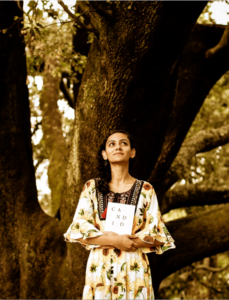
Which ethnicity do you identify with?
I was born in India, so I am an Indian to some extent. But, what does being an Indian mean and to what extent I feel Indian are conversations for another time.
When did you or your family migrate to NZ? What brought you/ them to NZ?
My family and I migrated to NZ in 2002. Our reasons for migrating are similar to other immigrants: higher quality of life and more opportunities for a better future for us, particularly for my brother and I.
Any anecdote of your/ their journey as a migrant that you would like to share. An experience that’s memorable/ positive and another experience that could have been avoided.
Not sure if I have any.
How has your experience been as someone who has tried to retain her roots even as you grew up in mainstream Kiwi culture?
Broadly speaking, I come from a family where each person’s views differs on the extent to which they identify themselves as Indian. Some consider themselves as traditional Indians while others are more liberal in their views and way of living. Due to these diverse identities that I have been exposed to from a young age, I have often asked myself the question “who am I?”. Over a long period of exploration, I am currently at the stage where I do not feel the need to subscribe to a culture or religion to be someone. And because I do not strongly identify myself as an Indian (other than the fact that I was born in India), I do not feel the need to retain my roots, which for a lot of people might mean to hold onto or practice cultural values and norms.
The kind of roots that I have been given and that I strongly hold onto are roots that go beyond the realms of culture and religion. They are universal values such as kindness, compassion, empathy, service, respect and so on. These values are my roots. One does not need to subscribe to a culture to have these roots. And so these are the roots that I have strengthened in myself overtime regardless of my culture, ethnicity or religion.
How have I been able to retain these roots in mainstream Kiwi culture? First of all, I do not think there is one overarching definition of Kiwi culture purely because of the plethora of cultures that are housed in New Zealand. It is a melting pot of cultures so it would be erroneous to think that there is one distinct Kiwi culture.
Secondly, in terms of retaining my roots in New Zealand, I do not think it matters to me where I live because the roots that I have are universal like I said before. So I have not had to make extra efforts to hold onto my roots or distinguish them from the mainstream Kiwi culture, whatever that might be. No matter what country, society, culture, religion, or tribe that you are in, it is important to be kind, compassionate, caring, serve wholeheartedly, and so on. And these values of mine fit with the ‘Kiwi culture’ that I am living in. I do not feel like I am juggling Indian culture and Kiwi culture because my roots are universal. In saying that, I can fluently speak, read and write Punjabi and Hindi purely out of personal interest in linguistics. So, I have been able to retain the languages that I learnt growing up.
How has your journey been so far in a multicultural NZ, in terms of cultural assimilation?
Personally, I have not experienced major challenges in interacting or assimilating with people from other cultures in NZ because as I said before, my roots are universal and can be practiced in any country or culture. If anything, I love getting to know more about the Indian culture and other cultures, their traditions, their histories, and so on. It does not mean that I start practicing their traditions myself, but I completely respect them. I’m generally an inquisitive person so I enjoy immersing myself in the Indian culture and other cultures, in order to get to know them. I have a strong sense of who I am, my universal values and my universal roots, so I try to practice them no matter what culture I am interacting with.
As an example, I have been visiting different places of worship for my PhD research. I am the same person practicing the same roots whether I am in a Christian church, a Hindu temple, a Sikh temple, or an Islamic mosque. I will definitely inquire about and follow their protocol, but I also try to practice being empathetic, non-judgemental, kind, and so on at each of these places of worship because these are my roots. It is a humbling experience to be able to do that. You get seen as a person that others can connect with no matter what your religious or cultural background is, and this enables you to connect with people from different backgrounds. It is a practice of unity on a larger scale, I feel.
How are these experiences reflected in your chosen profession, as a published poet? Does your multicultural experiences influence your poetry in any way?
I am humbled that you view my poetry as my profession, but I would not go as far as that. Poetry is something that I do on the side; my PhD is currently my student ‘profession’ and one that takes up most of my time because I am seriously pursuing it. Maybe if I devoted as much time to poetry as I do to my PhD, I could make ‘poet’ as my profession. But, at the moment, poetry is something that I do on the side.
I have been writing poetry since my early teens as a means to make sense of what is happening to me and around me. I have always been someone whose preferred method of communication is written rather than verbal. So, writing has given me the voice that my mouth perhaps could not.
In 2018, I set myself a goal to do at least one thing out of my comfort zone every single day. I published my poetry to end the year on a high note, because putting my raw self out there in the form of poetry was very much out of my comfort zone. I didn’t know how people will take it, the deeply vulnerable parts of myself. That is why I had to do it, to stick to the goal I had set for myself earlier in the year.
In terms of whether my multicultural experiences influence my poetry in any way, I do not think they do. My poetry largely reflects what is going on inside me and around me. It is evocative, as I have been told. In saying that, I do sometimes challenge certain cultural norms through my poetry, like female foeticide, male favouritism, and so on.
Tell us about your story, your dreams and your achievements – which you perhaps express through your poetry.
My dream is not just my dream, but the dream of millions of people around the world. My dream is to live in a peaceful world, which is connected to the goal of creating a heaven-like civilization on earth. I believe that one way to achieve that is to unite with each other – to practice unity with nature, unity within and between religions, unity within and between cultures, unity within and between families, unity within and between nations. World peace starts with a single family, and if members of each family can unite with each other and with those outside the family in love and harmony, then we can achieve world peace.
But I would not like this to sound fantasy-like and leave it there. It is one thing to have a dream and quite another to work on achieving that dream. In my daily life, I try to make my words and actions reflect my roots that I talked about earlier and they also reflect in my poetry. Practicing my roots is directly connected with achieving my dream, which is also the dream of others. However, I can only take responsibility for my own words and actions, not those of others. I would like my life to be my inspirational quote, over and above my poetry.
Any nuggets of advice you would like to share with our readers, especially the ones who have migrated to NZ from other cultures and are struggling to adjust to the diversity around us?
As someone with a background in developmental psychology and a research interest in parenting, there are a couple of things I would like to share with parents and children.
Firstly for parents: you are doing the best you can considering the challenges you might have faced before, during and after migration. Prioritise and practice self-care – this is the food that your soul needs, on top of the food that you provide to your body. Every parent wants to do their best for their children – you can care for your children better by caring for your spiritual, mental, physical, and emotional needs first. Try not to be too harsh on yourself in the way that you treat yourself and in the way that you parent, but always remember that there is no limit to self-improvement. You can continue to grow both as a human being and as a parent. Parenting can be incredibly transformational if we let it.
Secondly for children: just like your parents, you are also doing the best you can. Your biggest challenge right now might be to find middle ground in beliefs and practices of your family and of those outside your family. What might help in this process is to know who you currently are as a person, and what kind of person you would like to be. Make efforts to know yourself well especially while you are young. Write down values and beliefs that are important to you in your life and make efforts to practice them consistently. Your values and beliefs might change overtime and that is ok. One day, you will reach a stage where you have a strong sense of self. You will get there. The teenage years can sometimes feel turbulent, but if we did not experience that turbulence at that time, we may never reach our destination – our true self.
Photos: Anna Bycroft Photography


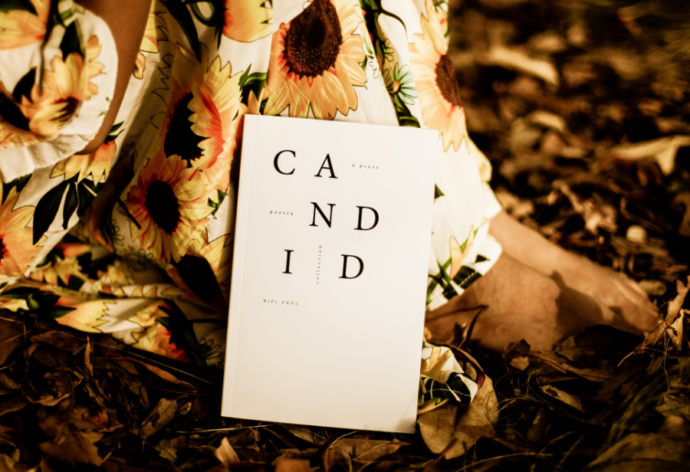

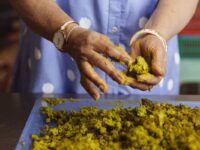
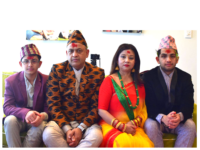


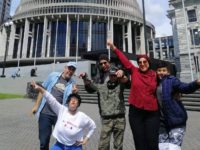





1 Comment